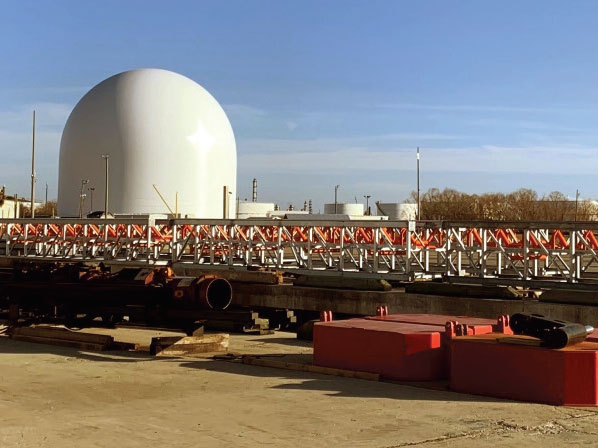Earlier this month, Enviva, a Maryland-based producer of wood pellets, announced its first industrial contract with an unnamed European customer. The ten-year deal calls for initial shipments of 60,000 tons per year beginning in 2023, ramping up to 1.2 million tons per year in 2027. The customer will process wood pellets into refined liquids for use in renewables like sustainable aviation fuel and biodiesel.

Enviva processes wood fiber into pellets, which is increasingly being used as a sustainable energy source to generate electricity and heat. The new industrial contract represents a new market opportunity for Enviva, with its pellets being processed to produce other downstream products.
Earlier this year, Enviva acquired a wood pellets plant in Pascagoula, Mississippi, a move, noted Keppler, which increases its production capacity by 14%. “We expect to be ramping up production during the first half of 2022,” he said.
Also in Pascagoula, construction of a $90-million, 90,000-ton capacity export terminal is proceeding apace and nearing completion. The terminal of the Port of Pascagoula has been a long time coming, with groundbreaking having taken place in 2019 and initial funding for the project secured by the port back in 2013.
Wood pellets produced locally, at the Enviva manufacturing plant in George County, Mississippi, 40 miles north of Pascagoula, and other Enviva plants in the Gulf region, will be exported through the terminal to markets in Europe and Asia. The United Kingdom, Japan, and South Korea represent some of the company’s largest export markets, while emerging opportunities are developing in Germany, Poland, and Taiwan.
The company also has several other capacity expansion projects underway, the largest of which is a plant located in Epes, Alabama, around 200 miles north of Pascagoula, which is currently under development. “We expect to commence construction in early 2022, with an in-service date scheduled for mid-2023,” said Keppler.
Epes is designed to produce more than one-million metric tons per year of wood pellets, which would make it the largest wood pellet production plant in the world, according to Keppler. “We think our next most likely greenfield plant is in Bond, Mississippi,” 70 miles northwest of Pascagoula, he said. That plant is being designed to produce at least 750,000 tons per year of wood pellets, Keppler said.
Sustainability efforts in industries such as cement and lime will continue to provide Enviva with a steady stream of contracts, according to Keppler. “There are dozens of multinational companies with an interest in decarbonization,” he said.
Industrial applications, such as the sustainable fuel production envisioned by Enviva’s newest customer, represent a major potential growth area for the company. There are a “host of others that are proven in various different applications,” said Keppler. “We expect to be opening up new markets, new segments, and new verticals within the industrial sector.”




